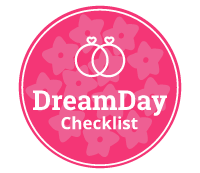Planning a wedding is an exciting time, filled with dreams of the perfect day. However, it’s essential to keep a close eye on your budget to avoid overspending and unnecessary stress. With careful planning and a few savvy tips, you can create the wedding of your dreams without breaking the bank.
In this article you will find:
- Setting a Realistic Budget
- Research and Compare Prices
- DIY Where You Can
- Track Your Expenses
- Prioritize What's Important
- Celebrate Your Budgeting Success
Setting a Realistic Budget
The first step in sticking to a wedding budget is setting a realistic one. Sit down with your partner and discuss how much you can comfortably spend on your big day. Consider your savings, any contributions from family, and how much you are willing to take out as a loan if necessary. Be honest and transparent about your financial situation to avoid any surprises down the line.
Divide your budget into categories such as venue, catering, attire, decorations, entertainment, and any other expenses you anticipate. This will help you allocate funds where they are needed most and avoid overspending in one area at the expense of another.
Research and Compare Prices
Once you have a budget in place, it’s time to start researching vendors and getting price quotes. Don’t settle for the first option you come across—compare prices and services to ensure you are getting the best value for your money.
Look for package deals that can help you save on multiple services, such as a venue that includes catering or a photographer who offers a photo booth add-on. Keep an eye out for off-peak season discounts or weekday rates, which can significantly reduce costs without sacrificing quality.
DIY Where You Can
One way to save money on your wedding is by incorporating do-it-yourself (DIY) elements. Get creative and make your own centerpieces, wedding favors, or even decorations. Not only will this add a personal touch to your day, but it can also save you a significant amount of money.

Enlist the help of friends and family to tackle DIY projects, turning them into fun bonding experiences leading up to the wedding. Remember to start these projects early to avoid any last-minute stress and ensure everything turns out exactly as you envisioned.
Track Your Expenses
As you start booking vendors and making purchases, it’s crucial to track your expenses to stay within your budget. Create a spreadsheet or use a budgeting app to monitor how much you’ve spent in each category and compare it to your original budget.
Make adjustments as needed, reallocating funds from less critical areas to cover any unexpected costs that may arise. By staying on top of your finances throughout the planning process, you can avoid any financial surprises and make informed decisions about where to cut back if necessary.
Prioritize What’s Important
When budgeting for your wedding, it’s essential to prioritize what’s most important to you as a couple. Identify the elements of your wedding day that matter most, whether it’s the venue, the food, the photography, or something else entirely.
Allocate a larger portion of your budget to these key elements, while being willing to make compromises in other areas. Remember that your wedding should reflect your unique style and values, so don’t feel pressured to overspend on things that don’t hold as much meaning for you.
Celebrate Your Budgeting Success
As you successfully stick to your wedding budget and watch your vision come to life, take moments to celebrate your financial savvy. Treat yourselves to a date night or a mini getaway to recharge and reflect on your planning journey.
Share your budgeting tips and tricks with other couples who may be struggling to stay on track, offering support and encouragement along the way. Remember that your wedding is just the beginning of your life together, and starting off on solid financial ground is a fantastic way to set yourselves up for a bright future.


